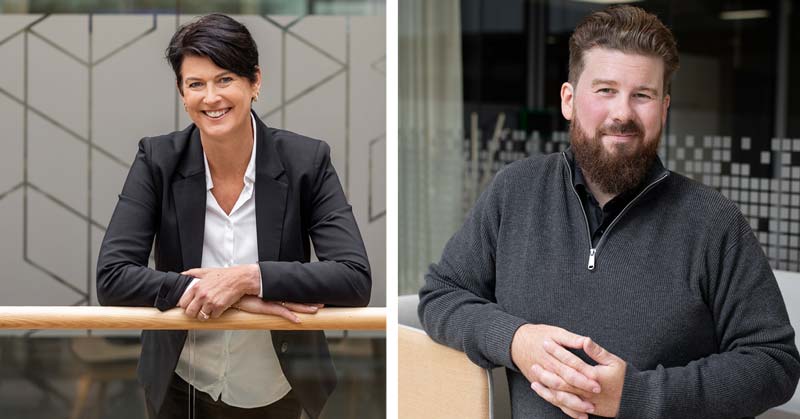Norway has a high level of education, but too few within technology, ICT and STEM subjects. NHO’s report shows a growing gap, and Noroff educates candidates where the need is greatest.
The NHO report “Norwegian Competitiveness – The Road to Growth”, published August 7, 2025, states that we are facing a serious competence gap. The proportion of young people choosing STEM and technology is low, and development lags behind our neighboring countries. At the same time, the demand is skyrocketing in digitalization, artificial intelligence, cybersecurity, and data analysis.
The report is referred to as “Norway’s Draghi Report,” with reference to former Italian Prime Minister Mario Draghi. In September 2024, he presented a major analysis of Europe’s competitiveness on behalf of the EU Commission. Where Draghi warned that Europe is lagging behind in technology and digitalization, NHO points to the same challenges in the Norwegian context.

Anita Karlsen, Director of Noroff University College, and Aage Alexander Foss, Rector of Noroff Vocational School. Photo: Jeanette L. Bækkevold
Too few choose technology
Despite the overall high level of education, recruitment to technology-oriented studies is too weak. When businesses need more technologists, data analysts and developers, but the education system does not deliver enough, productivity and value creation suffer.
It is not only about educating more technologists, but also digital craftsmen—candidates who can combine practical and theoretical competence.
– Norway needs both technologists and digital craftsmen to succeed in the transition. We must invest in educations that provide both theoretical depth and practical skills, says Anita Karlsen, Director of Noroff University College.
Companies are calling out for candidates
NHO’s member companies report significant recruitment challenges, not only at the master’s level, but also for vocationally educated graduates. The need is particularly high within ICT, engineering, and other STEM fields. This is about both the number of candidates and relevance: a stronger link between theory and practice makes the transition to work faster.
– We see that many young people want flexible and practice-oriented studies. That is why we have emphasized educations that combine theory and practical experience, giving students an advantage when meeting employers, says Aage Alexander Foss, Principal of Noroff Vocational School.
Noroff’s contribution
In recent years, Noroff has developed programs more closely linked to working life, including IT, cybersecurity, data science, digital marketing, design, film and music production.
The programs combine online solutions with practice-oriented projects, so that students gain both flexibility and work experience along the way. The goal is to deliver candidates who can quickly move into relevant roles.
The report points out that much of future value creation will take place in the technology industries. Norway and Europe have to a lesser extent than the USA managed to build similar growth environments. To succeed, more young people must choose technology and STEM subjects, while education programs must be continuously updated in line with labor market needs.
Noroff will contribute to this transition by educating more young people in the fields where the need is greatest, and by delivering candidates with skills that make Norway more competitive.
Sources: Mario Draghi, The Future of European Competitiveness (EU Commission, September 2024). NHO, Norwegian Competitiveness – The Road to Growth (August 2025).



